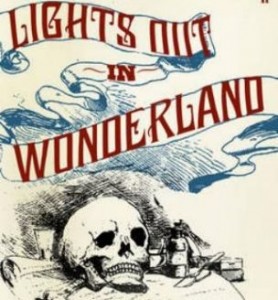Every time I run into a literary wall, my main character is going to pull out his weathered copy of Atlas Shrugged and read the giant speech near the end out loud. Doesn’t matter if he is on the subway or in Subway. Ayn Rand. Loud. In full. And, as the man hunched over the keys trying to tell you this character’s story, well, it would only be fitting for me to transcribe the speech as he gives it. Otherwise, I wouldn’t be doing the character justice. I wouldn’t be doing my job. And goddammit, if there is one thing I take serious in life it is writing real life stuff about real life people and if my main character wants to read the giant Atlas Shrugged speech ten times throughout the course of my (huge fake in-the-air finger quotations) novel, well then, it is my right…no, my duty and obligation, to allow you, the reader, the chance to multiply the cheat-factor and just skip it (like everyone in the entire world actually does with said part when encountering it within the confines of said book). And if you, the reader, the general public, don’t like it, tough tittie. Write a chapter about it in your own book.





